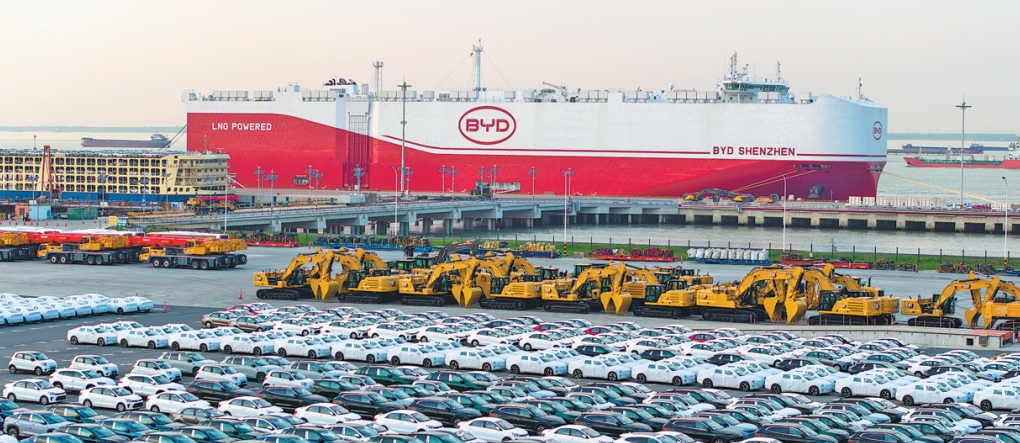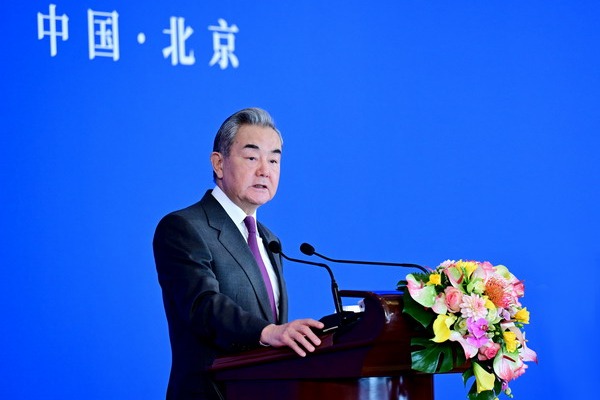Brazil looks to strengthen trade relations with China
Experts: Economic headwinds such as US tariffs will drive stronger partnership


Surging inflation and US tariffs are forcing Brazil to renew its focus on strengthening trade ties with China as a catalyst for economic recovery.
Inflation in Brazil reached 5.48 percent in March, a two-year high and well above the central bank's target ceiling of 3 percent, authorities say.
Tariffs announced by United States President Donald Trump threaten to undermine Brazil's key agricultural exports sector, adding to its economic woes and eating into the government's approval ratings.
Facing these challenges, Brazil has ramped up efforts to strengthen ties with China.
"The scale of commercial activity between these two thriving economies could greatly affect Brazil's growth trajectory," said Ricardo Teixeira, who manages the Master of Business and Administration program at Getulio Vargas Foundation, a think tank in Rio de Janeiro.
Brazil now attracts 4.8 percent of China's overseas investment, making it the fourth-largest destination for Chinese capital.
Many sectors are ripe for expanded collaboration between the two countries, including agriculture, energy, minerals, pharmaceuticals and technology, Teixeira said.
"Brazil and China both maintain diversified economies, ranging from agricultural production and livestock to the most modern technology."
Robson Cardoch Valdez, a professor of international relations at the Brazilian Institute of Education, Development and Research in Brasilia, said Brazil's exports remain heavily concentrated in commodities such as soybeans and minerals.
The value of its soybean exports to China almost doubled to $39.8 billion between 2019 and 2023. The country shipped 1.3 million metric tons of beef to China last year.
Chinese investment in Brazil totaled $73.3 billion across 264 projects between 2007 and 2023, with a focus on energy, agriculture and automotive sectors.
Brazilian technology companies are pursuing partnerships with Chinese companies in artificial intelligence, biotechnology and financial technology, Teixeira said, adding that China's expanding investments in Brazil's renewable energy are also creating additional collaboration opportunities.
"The Brazil-China trade relationship looks set to strengthen, especially as new opportunities open up in emerging fields such as clean energy and healthcare."
Leading investor
China has become a leading investor in Latin American sustainability projects, a focus that matches Brazil's ambitions to cut its net greenhouse gas emissions by 67 percent by 2035.
"Both countries are increasingly prioritizing sustainability in their trade relationship," Teixeira said.
Another factor driving Brazil toward China is the recent bout of US protectionism, including 25 percent tariffs on steel and aluminum imports and a 10 percent baseline tariff on all goods. Although some of the new tariffs have been suspended for three months, the effects could be significant.
"Growing US protectionism has disrupted global trade patterns, potentially driving Brazil closer to China, which is increasingly viewed as a more dependable trading partner," Teixeira said. "The Brazil-China trade relationship continues to grow beyond commodities into advanced technology sectors."
Brazil's real GDP grew 3.4 percent last year, driven by solid consumption, supported by a heated labor market and fiscal transfers, and the recovery of investments. However, a World Bank report published on April 30 forecasts Brazilian real GDP growth of just 2.2 percent this year, as higher interest rates and an adverse external environment weigh on investment, and household consumption slows because of rising household debt, lower transfers and diminishing labor market gains.
In addition, Brazil and China are deepening their political and technological collaboration through multilateral platforms such as BRICS and the G20, said Valdez of the Brazilian Institute of Education, Development and Research.
"Joint initiatives such as the CBERS space program demonstrate our expanding scientific collaboration," he said, referring to the China-Brazil Earth Resources Satellite program, a long-running space technology partnership between the two countries.
The writer is a freelance journalist for China Daily.

































